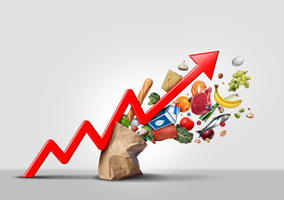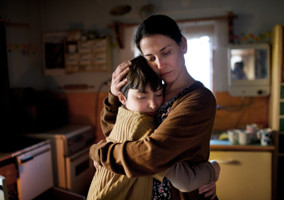Many charities with older buildings are being hit by soaring energy prices, with some reporting that their costs have risen by up to five times, sector bodies have warned.
NCVO said nine out of 10 charities were concerned about rising energy costs, while ACEVO said its members had reported that their costs had increased by 300-500%.
The Ethical Property Foundation (EPF) said charities were particularly at risk from rising prices as many have “old and energy inefficient” buildings and warned that many could have to close this winter.
Pro Bono Economics (PBE) said charities providing energy-intensive services would also be keenly affected, with an increase in demand for services adding more pressure.
EPF: 'We're going to see lots of organisations closing their doors'
Antonia Swinson, chief executive of property advice charity the EPF, said that rising energy prices present a “massive challenge for our voluntary sector” which is already under pressure from responding to the pandemic.
She continued: “So much charity property is old and energy inefficient, and there is often confusion over what the landlord should be doing and what the tenant is responsible for. Added to this, hybrid working means basically charities can find themselves paying thousands to heat half-empty buildings. Many charities are also tied into council leases for years. Very sadly, we’re going to see a lot of organisations who did such fantastic work through the pandemic, closing their doors this winter.
“Early findings of our 2022 Charity Property Matters Survey – out in October – show a widespread willingness to be green and save energy but the real fear is how charities can afford to keep going. Everyone talks about working from home being the new normal, but frankly, unless your charity HQ is camping out in a tent in a field, you need a building to deliver for your cause and community. All this, with inflation too. It’s a perfect storm.”
300%-500% increases in energy costs
Jane Ide, chief executive of ACEVO, told Civil Society News that the organisation’s members were anecdotally reporting increases in energy costs of 300% to 500%.
“I think the energy prices are an indicator [of a wider issue], and they're a very tangible thing that people can get a hold of,” she said.
“Charities and all organisations in civil society are going to have to find ways to manage that situation. But the thing that I'm really hearing people are concerned about people is what this is doing to our communities.
“Because that's where the real pain is being felt. And I don't mean that to downplay the reality of the challenge for the sector itself. But if we could resolve those core issues of inflation and the cost of fuel, of living, then actually, the pressure on the sector goes away.”
Ide said she would like to see politicians tackle the root causes of inflation and the rising cost-of-living.
90% of charities concerned about rising bills
Rising energy costs are a concern for nine out of 10 charities, according to a recent survey by NCVO.
Conducted in June with 250 NCVO members responding, this means only 25 were not worried about the rising cost of energy bills.
Rebecca Young, lead policy and influencing manager at NCVO, told Civil Society News that the sector needs government support so that charities can continue to pay their bills.
“Charities will be essential to getting people through this crisis, but charities won’t be able to meet rising demand without funding to cover their costs. This isn’t just about supporting charities offering cost of living support. We can’t afford to lose charities of all types and sizes as they are essential for strong communities and economic growth,” she said.
“We need the government to provide comprehensive support to ensure charities can pay their bills, including reducing the VAT that charities pay on energy to 0%, uplift grants and contracts in line with inflation, and consider wider action to help organisations pay their bills this winter.”
PBE: 'Charities are facing the dual impact of their own finances and beneficiaries'
Charity sector think tank PBE agreed that the cost-of-living crisis is putting the sector in a difficult position.
Helen Barnard, research and policy director at PBE said: “As fuel prices continue to rise, charities are clearly feeling the dual impact on their beneficiaries and on their own finances. Many of those who require support from charities are especially exposed to rising energy costs, particularly disabled people with conditions made worse by cold or needing energy to run lifesaving equipment.
“Meanwhile charity incomes are feeling the pressure from the cost-of-living squeeze’s effect on donations, just as demand and charities’ own costs increase - particularly in older buildings with less insulation, and facilities offering energy intensive services like hydrotherapy.
“It is vital for the new prime minister to act fast with a package of support to hold back a wave of hardship, debt and destitution as energy bills rocket again this winter. But we also need a longer-term strategy for growth and economic security, to build up our national resilience to future shocks.”
Department for Culture, Media and Sport (DCMS): Potential support for charities
The government spokesperson for DCMS told Civil Society News energy suppliers may offer concessionary rates to charities and suggested organisations contact their supplier to ask.
Charities may also be entitled to a reduction in VAT, from 20% to 5%, and exclusion from the main rates of the Climate Change Levy on the energy they use for non-business purposes.
The spokesperson said: “We know rising prices caused by global challenges are affecting how far people’s incomes go and have continually helped households by phasing in £37 billion of support through the year. This includes specific support to help people through the difficult winter ahead."
Have the energy bills for your charity gone up since the start of this year?
— Civil Society (@CivilSocietyUK) August 17, 2022
Related articles












